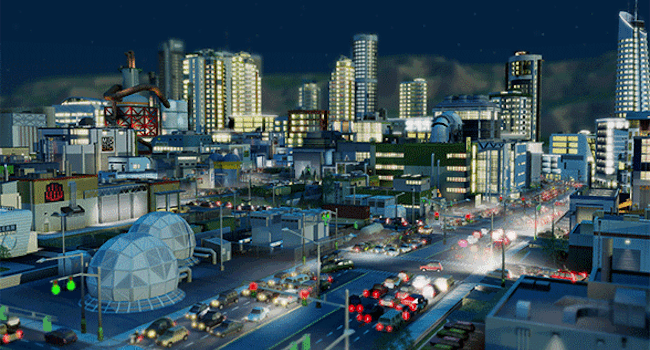South Africa’s retail forex industry is entering a decisive phase as regulation tightens and consolidation accelerates. What does it mean for brokers and traders?
The great Sim City debacle: how DRM killed our dreams


Before The Sims there was Sim City. Developed by Maxis and released in 1989, it was one of the first games of its kind: a simulator that let you build a city and micromanage the intimate workings of its infrastructure. The brainchild of Will Wright — who would later go on to make The Sims — Sim City spawned numerous successful sequels.
Now there’s a new one out and it’s described as a “reboot”, that awful, vacuous phrase that simply masks the obvious: this is a sequel, only we’re tired of seeing the numerals stack up. The Sim City of 2013 honours the beats and rhythms of that very first 1989 installment. And by all accounts it should be the most outstanding technical achievement in the series to date, given that it’s, well, the newest.
But something troubling has happened. Sim City: The Reboot demands that you’re connected to the internet at all times to play. This means you’re never truly on your own. While the previous installments promised delicious solitude for a few hours in a day, this new incarnation demands a more sociable outlook before playing.

The idea that the internet is infallible is a product of false optimism. It’s an organism that is prone to the odd hiccup. Even so, online games have been entertaining thousands of simultaneous players on their servers for years now, so the issue lies squarely with EA and Maxis.
Utterly “dumb”
The whole affair is steeped in farce not least because EA supposedly tested its servers during an hour-long beta of the game. But an hour of players jumping in and out of the Sim City experience is hardly a reliable test-case.
Indeed it prompted Maxis general manager Lucy Bradshaw to label the release of the game as an exercise in stupidity. Or, as she said with refreshing simplicity, “dumb”. But why has EA taken the game online?
On the one hand, Sim City now promotes co-existence between users. You build on land that neighbours other real-life players and their own cities. The success of your city often comes down to how well you strike up a deal with these people. Can you get a mutually beneficial agreement going that pools your respective resources? In a sense, this virtual world now resembles the real-world more closely with all the squabbles and difficulties that entail, something that a solo experience can never replicate.
But best of all it stops you from being able to pirate the game. We all know piracy is the scourge of companies like EA that counts its profits before its satisfied customers, and that looks at favorable reviews as a possible sound bite for the “special edition” release rather than a job well done.

So whether you’re not in the mood to connect to EA’s Origin “service” or whether you’re not a member of the First World — and instead rely on an internet connection that falls foul to mood swings — EA isn’t much bothered.
The only real concession to the solo gamer is this: you can play on a plot of land that is disconnected from the rest of the Sim City world, but you still need to be logged into EA’s tiresome Origin. I used the word “service” in the previous paragraph, but Origin isn’t really a service. It’s a bugbear, a pain, and a good reason never to buy the game.
Indeed it doesn’t seem fair that EA lumps paying customers with shoddy service and “services” like Origin. Perhaps we should question Maxis for going along with this. What would Will Wright say? Wright, the man who masterminded The Sims, one of the most accessible games to grace the PC. Sadly Wright left Maxis a few years ago, which is perhaps the reason EA has been able to pull this trick now.
Internet all day, all long
If popular culture is a reflection of our times then Sim City is indicative of our addiction to the internet. Except it stands as the worst expression of online gaming. The internet is used here as a platform to excise piracy but in doing so, EA has robbed the Sim City fan of a useable experience.

Trust the bigwigs at EA to be the ones to push the series online. It is, after all, the company that is responsible for monetizing gaming. EA has turned a small, bit-part hobby into a multi-billion dollar business. Well done to it. And it has every right to try to ensure that this is a financial success that doesn’t fall foul to piracy.
Gaming is a business. We get that. But all businesses need to ensure that their services and priorities are in order. The server problem and general online woes might soon be ironed out. When they are, EA and Maxis will live this frosty episode down.
But EA better not try to undercook another game again. Hell hath no fury like a gamer scorned.

